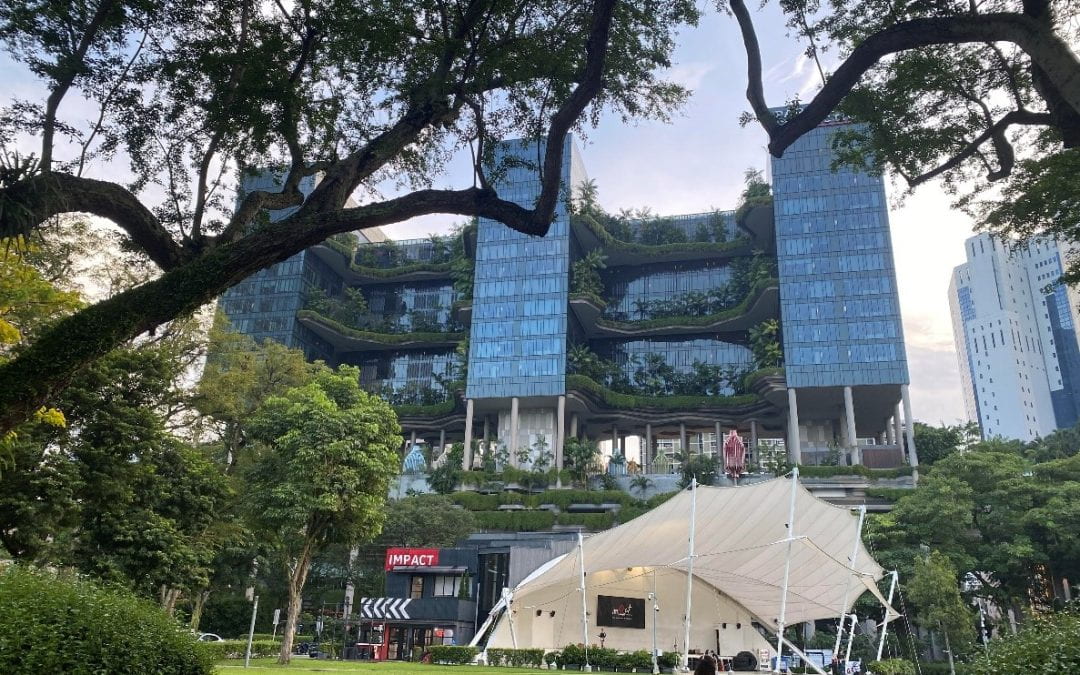
By Natasha Baker
Over winter break last December, I joined a group of 18 business students and two professors on a study abroad trip to Singapore. I am getting my MBA at Kellstadt with a focus on international business. So, I knew that I could benefit so much from this experience to learn more about international business, more so than by sitting in a classroom.
I didn’t know that much about Singapore before the trip. I knew that it was a small city (it is actually a city, nation and a state) and that it was somewhere in Asia. I chose Singapore because it is a place that I have never been, and going felt like a once in a lifetime opportunity. I was also interested in learning more about it because I’m hoping to live abroad after graduating, and I’ve heard that Singapore is a great place for expats to live. When you enroll in a study abroad business seminar, you have to attend a few meetings with your travel group before the trip to help prepare you for the experience and also to get to know everyone, which is helpful. The more I learned about Singapore in these pre-trip meetings, the more fascinated I became.
Arriving in Singapore

One of the many rooftop gardens with a great view of the iconic Marina Bay Sands Hotel.
After a long 12 hours of travel, we arrived in Singapore to lovely 80 degrees and overcast skies. Everywhere we looked, we saw tropical plants and flowers blooming, even on the sides of buildings. Since 2005, Singapore has made it a goal to integrate environmental stability into its urban infrastructure, motivated by a desire to fashion a clean, efficient city that reduces the reliance on natural resource imports for construction. This is just one of the impressive, progressive things they do.
We admired the city and its infrastruce. It is one of the cleanest, more pristine cities I have ever been to. Also, extremely safe. The public transportation system is something us Chicago people dream about. What you can really notice is that the governement puts in a lot of effort and time to give residents a high quality of life no matter what your economic status is. This includes subsidized housing and healthcare.
A Diversity of Cultures

Exploring Haji Lane, one of the narrowest streets in Singapore, in the Kampong Glam neighborhood. The Lane is known for its shophouses, independent stores and cafes.
Our days were spent with a tour guide from Hello Singapore Tours. His name was Gee Soo and he was truly amazing and we became very close after spending many days together. Each day was filled with miles of walking, tons of food and hours of history lessons. The highlights for me were going to the areas of town that were forged by the many different demographics of people that ended up in Singapore. We explored areas like Chinatown, Little India, Katong and Kampong Glam. Although Singapore is only about 280 sq. miles long, you can walk from one neighborhood to another and feel like you’re in a completely different country. Each community of people (mainly from China, Malay, India and Eurasia) brought their culture from their home country to Singapore so that they didn’t feel so far from home. These culturally diverse neighborhoods were highlighted by beautiful temples and authentic cuisines.
A Spirit of Kindness

Our group in the Hindu Sri Veeramakaliamman Temple in Little India.
Something that surprised me the most about Singapore was how welcoming and kind all of the people were. Everyone is so relaxed, happy and wants to engage. An experience that stuck out to me that I can’t stop thinking about is when we visited the Hindu temple, Sri Veeramakaliamman Temple. Anyone is allowed to enter the temple as long as your respect their requests of covering skin and removing shoes. At the time we walked in, they were doing blessings and prayers. If you gave a donation they would bless you with ash and give you a bag of flowers and fruit to give to the dieties as offerings. We walked around to see all of the different dieties and discussed what they were. We walked by some volunteers in the temple preparing food for a long line of patrons. They insisted that we try some of their vegetarian snacks and drinks. They were so kind and welcoming and after leaving I felt like I had experienced something so special. There were so many moments like this throughout the trip.
A Chance to Learn & Explore
Visiting Singapore was an educational experience, but it was also fun! We had a schedule of sites to visit every day, but during our free time we would explore the night life, museums, Gardens by the Bay, many hawker centers and even a night safari! The list goes on and on.
The trip was led by two stars of DePaul’s School of Hospitality Leadership, Lisa Young (director of the school) and Professor Juan Mendez. As it was a hospitality-focused study abroad trip, we spent a lot of time exploring the hospitality industry in Singapore. We visited many unique businesses that have found great hospitality niches in Singapore. What I appreciated about Lisa and Juan is that they let us decide what we wanted to get out of the trip based on our studies and interests, since not all of us were studying hospitality. Personally, I wanted to explore the possibility of moving to Singapore and what it would be like to work internationally. I was able to speak to people about what that experience would be like and it gave me a better understanding of what my options are.
Traveling abroad is an invaluable experience. You can’t really put into words how important it is for becoming a well-rounded human being. When you pair that with the focus and discipline of studying for your MBA, it opens up your mind to so many opportunities. I always regretted not studying abroad in my undergrad, but this trip made up for the lost opportunity.
 Natasha Baker is a student at the Kellstadt Graduate School of Business pursuing an MBA with a focus on international business. She is from North Carolina and received her undergraduate degree from Appalachian State University. After two years as an executive assistant at TransUnion, Natasha recently transitioned into an account manager role. At DePaul, Natasha sits on the board of the Kellstadt Women in Business student organization as the VP of strategy. In her spare time, she enjoys traveling, exploring the city of Chicago, trying new restaurants, and spending time with family and friends.
Natasha Baker is a student at the Kellstadt Graduate School of Business pursuing an MBA with a focus on international business. She is from North Carolina and received her undergraduate degree from Appalachian State University. After two years as an executive assistant at TransUnion, Natasha recently transitioned into an account manager role. At DePaul, Natasha sits on the board of the Kellstadt Women in Business student organization as the VP of strategy. In her spare time, she enjoys traveling, exploring the city of Chicago, trying new restaurants, and spending time with family and friends.
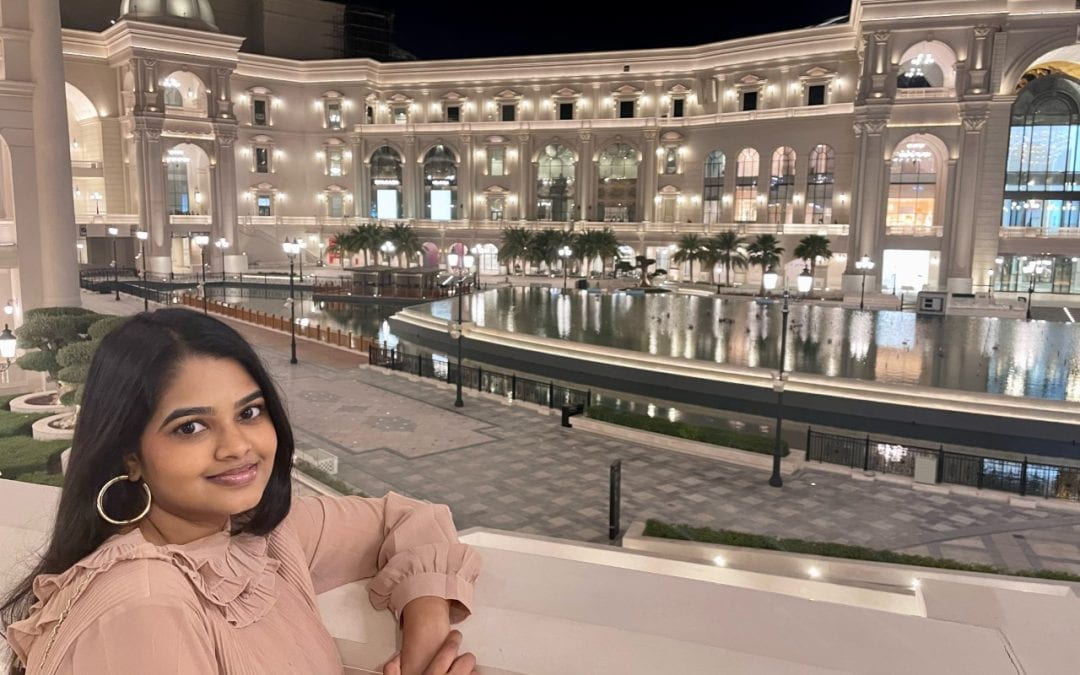
By Shanjali Arulmozhi Arasu
I was first drawn to DePaul because of the new healthcare markets and analytics concentration in the MBA program at Kellstadt. I was excited to dive into my learning journey and take advantage of all the opportunities that Kellstadt had to offer. I had read about these opportunities as I researched which universities to attend, so I had an idea of what to expect when I began my first quarter in fall 2022.
But there’s only so much you can learn about a university by reading about it. Now that I’ve completed my first quarter, I can say there is a lot I’ve learned about DePaul that I wasn’t aware of prior to becoming a student here. Here are the top three things I’ve discovered so far that make DePaul—and Kellstadt—a great place to be:
Job recruiters are quite literally at DePaul’s doorstep
My first day at DePaul, I was greeted by a Crowe pop-up stand with pizza even before I found my way to class. Crowe is an accounting, consulting and technology LLP and they were there that day recruiting business students and graduates and offering internship opportunities. If you would’ve told me before I’d come to DePaul that there would be recruiters literally on my way to class, I would’ve thought you were joking. But that is literally how accessible companies are to students at DePaul. The Big Four companies being KPMG, Deloitte, Ernest and Young and PwC have also made their big appearances at DePaul’s campus. DePaul provides students with many opportunities to know and connect with potential employers on campus. This way students don’t have to go far and beyond to get face-to-face with their dream company.
There’s a student organization for almost every interest
Whether you are interested in archery, cryptocurrency or simply love to read, DePaul welcomes you with more than 498 student clubs and groups that cater to so many different interests. I had always been interested in learning American Sign Language (ASL). I learned some ASL on my own during the COVID-19 lockdown period and was super excited when I found out that DePaul had an ASL club for undergrad and grad students. The club met throughout the quarter with events such as the Deaftopia, where students were able to get to know people in the deaf community and practice their sign language. DePaul’s numerous clubs offer a great way to meet peers in similar courses to you, learn more about a professional career, develop a hobby or simply network!
The career events and opportunities are countless
There are so many opportunities for Kellstadt students to gain real-world experiences in the field of their interest, and many student organizations that put together career-oriented events almost every day. One of my favorite events that I attended was a visit to the BMO office, organized by DePaul Females in Finance.
Students had the opportunity to receive a personal tour of the BMO office and hear from a panel of industry professionals from BMO, Northern Trust and 1871—an innovation hub in Chicago that DePaul students and alumni have special access to. We also heard from four Kellstadt alumni working in analytics, which provided great insight into the various careers in analytics, tips to ace the interview process, softwares used in the analytics field and more.
Another event that stood out to me was the fall 2022 career fair that featured over one hundred companies, ranging from the NFL, PWC, American Heart Association, CVS health etc. This event exposed students from all across DePaul to recruiters and allowed for essential networking. Being able to meet and develop relationships with career professionals from so many different companies was immensely valuable.
DePaul took me by surprise in the best way possible by offering the kind of support I didn’t know I needed in my personal and career life. Whether it was the staff, professors or the clubs, I felt welcomed with open arms and was given a safe space to express myself and learn from those around me.
 Shanjali Arulmozhi Arasu grew up in Saudi Arabia and Qatar, earned her bachelor’s degree in the United Kingdom and currently lives in Chicago, where she is pursuing her MBA with a concentration in healthcare markets and analytics at DePaul’s Kellstadt Graduate School of Business. A graduate assistant in the Department of Economics, she is passionate about healthcare management and has plans to work in the field after graduating. Shanjali loves cats and enjoys exploring the City of Chicago in her leisure time.
Shanjali Arulmozhi Arasu grew up in Saudi Arabia and Qatar, earned her bachelor’s degree in the United Kingdom and currently lives in Chicago, where she is pursuing her MBA with a concentration in healthcare markets and analytics at DePaul’s Kellstadt Graduate School of Business. A graduate assistant in the Department of Economics, she is passionate about healthcare management and has plans to work in the field after graduating. Shanjali loves cats and enjoys exploring the City of Chicago in her leisure time.
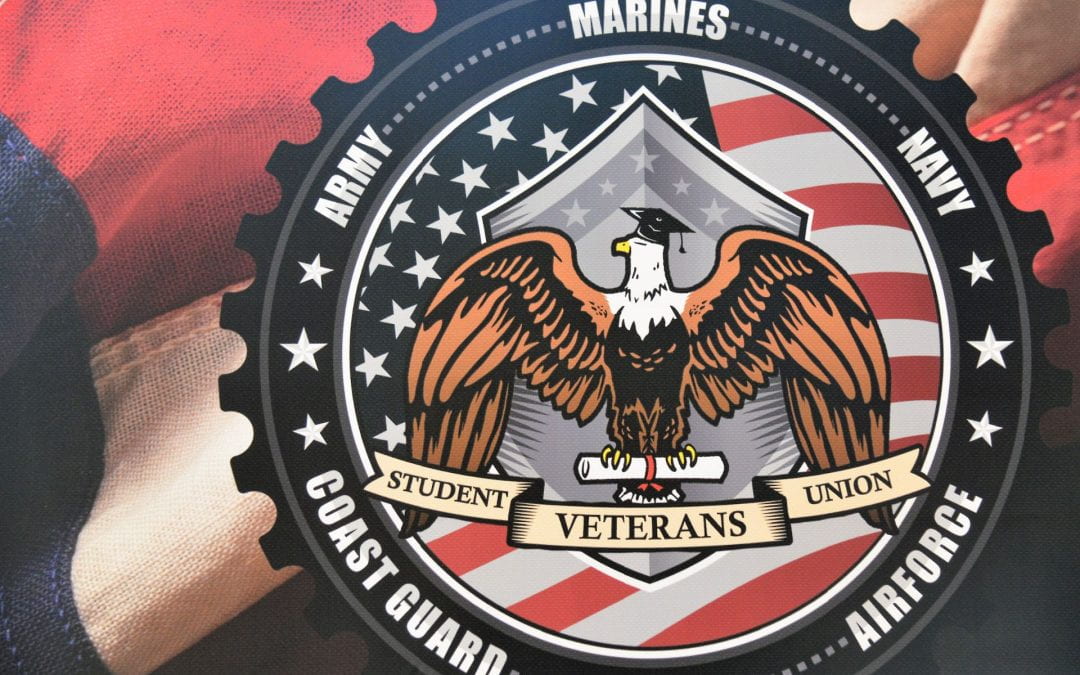
Mike Robinson served in the U.S. Navy for five years as a nuclear physics instructor at the Naval Nuclear Power School in Charleston, S.C. The Navy’s submarines and aircraft carriers are powered by nuclear reactors and it was his job to teach future operators the fundamental theories of how they worked. During his last year of service, he also took on a managerial role, which included mentoring and overseeing the training of new instructors and working on various curriculum changes. Being stationed in Charleston was a great opportunity, he says, to explore nature and the outdoors. Today, Robinson is pursuing his MBA with a concentration in entrepreneurship at the Kellstadt Graduate School of Business.
Why did you decide to study business?

Mike Robinson
I chose business because it will provide me with valuable skills in leadership and management, along with a solid background of knowledge that will be useful for starting and growing companies. I would like to become more involved in organizations that connect and help others using technology. Whether I join a small startup or create my own business, I believe the experience I gain at DePaul will be vital to this journey.
How is the college experience different for veterans?
My college experience as a veteran is notably different from my experience before as an undergraduate. Most veteran students are older compared to an average undergraduate student, since they have done time in the service first, and they have more hands-on work experience. I think this makes it a bit easier to manage one’s time, meet deadlines and formulate a plan before execution.
At the same time, veteran students might have more responsibilities such as families or work that might demand more of their resources. There is a bit more balancing that needs to be done, but I think prior military experience provides a good framework for this skill. In addition, I found that I really connected with other veteran students as our shared experiences went a long way.
What advice do you give veterans on how their training could apply to studying and pursuing careers in business?
There are quite a few parallels between the military and business school. Veterans have the organizational skills and discipline to get tasks done properly and efficiently, whether it be a midterm paper or preparing for a class presentation. Regardless if a veteran student is pursuing an undergraduate degree full-time with four classes or just going part time for a graduate program, I would recommend that they see the similarities between the military and their program; instead of physical training, there is mental training (learning), etc. Also, setting a schedule is vital; in the military so much of the day is planned for you. With all the freedoms that come with being a student, keeping a planner is essential.
How was your experience transitioning to DePaul as a veteran student?
My transition from active duty to student became much easier once I committed to being a student and stuck to a daily routine. I think it is easy for veterans to wander a bit when they first lose the rigid structure of the military. Once I started attending DePaul full-time, I was able to devote myself to learning and it helped me get a strong sense of purpose and vision, which I think many veterans struggle with when first leaving the military. The time that I did take off between the Navy and graduate school provided me with some time to travel and see parts of the world that I hadn’t seen, such as the Caribbean.
Now I am living somewhere I’ve never lived before (Chicago) and I feel blessed that it has been such a positive experience. It is easy to make friends in the city, build strong connections and find communities to thrive in. Everyone I have interacted with at DePaul (students, professors, advisors etc.) has been friendly, helpful and supportive. I wouldn’t be nearly as successful as a student if it wasn’t for them.
Check out these veteran student resources at DePaul University:
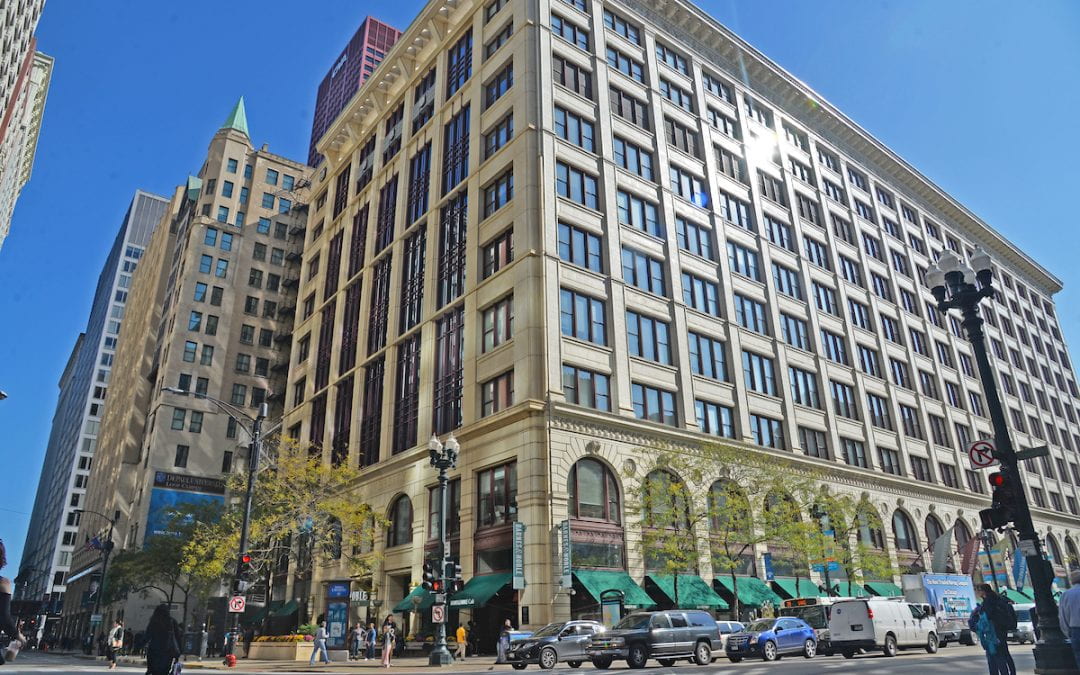
Hundreds of students enroll in the Kellstadt Graduate School of Business each year, so what about Kellstadt attracts them and how is Kellstadt supporting their success? In this Q&A series, we’re inviting students and recent alumni to share their perspective on why they chose to study at Kellstadt and why they’re glad they did.
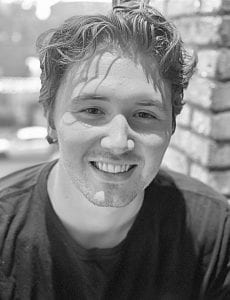
Bill Dolan
Next up is Bill Dolan, a graduate of the Master of Science in Economics & Policy Analysis program. Dolan works in economic consulting. He started as an analyst at Compass Lexecon a week after completing his MSEPA degree in March 2022. Before graduate school, he worked in a similar industry but at a much smaller firm, so although not technically a career change, he says his new role does feel like it sometimes given the significantly different type of work a large company does compared to a small company in finance/economics.
Why did you choose Kellstadt?
What proceeded grad school was a random occurrence in life that knocked me off the train tracks I was on and set me on a new path. I would say, in a few words, this new path initially started with a thirst for knowledge, so I started a journey of self-education with an ambitious goal: to understand how the world works. After a while, I realized two things: first, it’s difficult to turn yourself into a scholar without help, and second, economics—specifically industrial organization—seemed to be the lens through which I was seeking knowledge, the vehicle to better help me understand how things worked.
After deciding I wanted to stay in Chicago for grad school, I researched Chicago universities’ graduate econ programs including their respective classes, and I chose Kellstadt because it had many of the industrial organization topics I wanted to learn about. In fact, my first class—Antitrust—had an optional book to complement the class, and I had already read that book. To be more concise, I felt the MSEPA program and I were a good fit for each other based on curriculum.
What did you enjoy most about Kellstadt?
The Industrial Organization classes—labeled the strategy concentration within the program—was my favorite part of my experience. It wasn’t just the topics that I loved, it was how they were structured and the man that taught most of them. Rafael Tenorio was the professor for five of the seven IO classes I took. The classes were half lecture and half student-lead discussion, which I believe is the future of education, because one day someone will study, measure and show that giving students more equity in the class makes for better learning. Rafael too, specifically, was my favorite teacher I’ve had at any level, in any form of education, so I guess that probably explains part of why I loved those classes too. He had the perfect blend of wisdom, patience and a great sense of humor. Plus, he really cared, which is what matters most.
Also, I have to say the classes not only helped me better understand the world, they taught me how to think about the world, which changed me as a person and helped me mature.
There are a handful of MSEPA professors who structure their classes as half lecture and half student-lead discussion. I had a total of eight: the IO classes plus Gabriella Bucci’s class, Economics of the Public Sector. I loved all of those classes, and I’ve never had an academic experience with a 100% approval rating until that specific type of class structure.
Giving the students a chance to reason through case studies together makes for more engaging classes, more focused students and more fun. Despite the tough days of the pandemic, we laughed a lot in those classes. They were always the highlight of my week.
Which professor has made the biggest impact on you?
I’ve spoken about the biggest impact on me being those eight classes. After that, Gabriella Bucci’s mentorship was the biggest part of my experience in the program. Simply put, she’s a wonderful person, and I’m lucky she was the director during my time in the MSEPA program. There are always a handful of professors who really care and want to help their students achieve better lives. Gabriella specifically not only cares but is a powerful personality, a great listener, and gives excellent advice on life and career.
What would you say to someone who is considering studying at Kellstadt?
I can only speak for the econ side of Kellstadt. I will say, regarding the MSEPA program, there’s great leadership that cannot be accounted for enough. There are several people who care and will lend you their time and wisdom, which again is invaluable. It’s a linear equation: you get out what you put in. If you’re focused and care, the education will transform you. You’ll be much closer to the version of yourself you want to be because you’ll learn how to think. Lastly, there’s just a bunch of wonderful people who run the program and are a pleasure to be around; it’s kind of an underrated part of life, spending your time around good people.
Learn more about Kellstadt’s Master of Science in Economics & Policy Analysis Program.
Read the other spotlights in this series:
Chaunice Dixon, an MBA alumna, shares how she discovered her interest in sports business marketing while studying at Kellstadt.
Randa Mahmud Ulankiewicz, a student in the Master of Science in Marketing Analysis program, shares how much Kellstadt’s faculty members have impacted her professional career.
Palak Patel, a graduate of the Master of Science in Business Analytics program, shares how she discovered her passion for global supply chain management at Kellstadt.
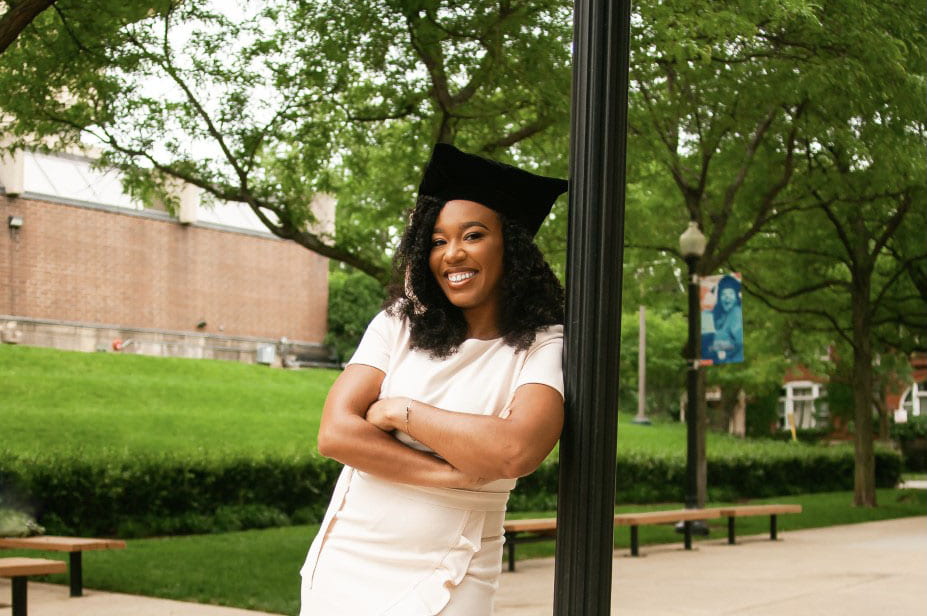
Hundreds of students enroll in the Kellstadt Graduate School of Business each year, so what about Kellstadt attracts them and how is Kellstadt supporting their success? In this Q&A series, we’re inviting students as well as recent alumni to share their perspective on why they chose to study at Kellstadt and why they’re glad they did.
Next up is Double Demon Chaunyce Dixon, who holds a BA in sociology from DePaul and graduated this past June with her MBA from Kellstadt, with a concentration in marketing. Dixon is a career changer, with her eyes set on a career in sports business marketing, which she says is a niche she discovered while studying at Kellstadt.
Why did you choose Kellstadt?
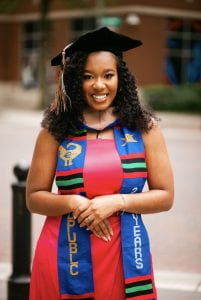
Chaunyce Dixon (LAS ’13, MBA ’22) discovered her interest in sports business marketing in a course she took at Kellstadt.
After graduating as an undergrad, I went into sales, but I quickly realized that sales did not interest me. At that time I was unsure of exactly what I wanted to do, but I knew that I wanted to do something in the marketing industry. That’s when I decided to go back to DePaul for my MBA.
What sold me on Kellstadt was the quality hands-on education that I knew I would get. I wanted a hands-on learning experience; I didn’t want to just learn from a textbook and lectures. I’m happy to say that Kellstadt gave me the experience I was looking for.
What did you enjoy most about Kellstadt?
Initially I was unable to experience all that Kellstadt had to offer due to scheduling conflicts that resulted in me not being able to join organizations like I wanted to. But that all changed during lockdown because when everything went remote, it gave me the flexibility and access to join various organizations in the program virtually.
I became the events director for the Kellstadt Marketing Group (KMG) student organization and helped to plan amazing events for students. I was also the marketing assistant for the School of Hospitality Leadership’s career fair. Both of those roles gave me the chance to become more involved and build my skills in creating and executing events.
Another great experience I had was being in the MBA program with my older sister Alexandria. She and I were both completing our graduate degrees at Kellstadt at the same time and graduated together in June. It was great being able to relate to each other’s journeys. Our youngest sister, Madisyn, started her undergraduate journey at DePaul as a transfer freshman last year, so we were able to guide and support her too, which was very special.
What Kellstadt course made the biggest impression on you?
The sports sponsorships course taught by Andy Clark had the biggest impact on me by far. During that class I was introduced to the world of sports and the different facets of the sports business industry, outside of the actual game. I had the opportunity to meet leaders in the industry and have one-on-one chats with them to gain further insights.
Prior to this course I had zero interest or knowledge in sports. I based my favorite sports team on if I liked their uniform. This course changed that because I started to see sports as a business; it is more than individuals playing a game. There is so much that goes into putting on an actual game outside of the players that really caught my interest and made me want to explore more. Since taking this course I’ve learned about sports sponsorships, activations, partnerships and the different brands that have deals with certain leagues or teams.
This class opened my eyes to career possibilities I didn’t know existed. Right now I am fully pursuing a career in sports business marketing and looking for roles specifically in sponsorships, partnerships and activations. I have also been considering becoming a sports and entertainment agent and eventually opening up a sports and entertainment agency.
What would you say to someone who is considering studying at Kellstadt?
There are so many opportunities to network, explore your interests and expand your career horizons when you’re a student at Kellstadt. To be completely honest I was unsure if I wanted to return to DePaul since I already went there as an undergraduate. But the amazing admissions staff in Kellstadt helped me so much and made me aware of a Double Demon scholarship I was eligible for because I was already a DePaul alumna. I decided to go for it, and I’m glad I did.
Read the other spotlights in this series:
Randa Mahmud Ulankiewicz, a student in the Master of Science in Marketing Analysis program, shares how much Kellstadt’s faculty members have impacted her professional career.
Palak Patel, a graduate of the Master of Science in Business Analytics program, shares how she discovered her passion for global supply chain management at Kellstadt.




 Natasha Baker is a student at the Kellstadt Graduate School of Business pursuing an MBA with a focus on international business. She is from North Carolina and received her undergraduate degree from Appalachian State University. After two years as an executive assistant at TransUnion, Natasha recently transitioned into an account manager role. At DePaul, Natasha sits on the board of the Kellstadt Women in Business student organization as the VP of strategy. In her spare time, she enjoys traveling, exploring the city of Chicago, trying new restaurants, and spending time with family and friends.
Natasha Baker is a student at the Kellstadt Graduate School of Business pursuing an MBA with a focus on international business. She is from North Carolina and received her undergraduate degree from Appalachian State University. After two years as an executive assistant at TransUnion, Natasha recently transitioned into an account manager role. At DePaul, Natasha sits on the board of the Kellstadt Women in Business student organization as the VP of strategy. In her spare time, she enjoys traveling, exploring the city of Chicago, trying new restaurants, and spending time with family and friends.

 Shanjali Arulmozhi Arasu grew up in Saudi Arabia and Qatar, earned her bachelor’s degree in the United Kingdom and currently lives in Chicago, where she is pursuing her MBA with a concentration in healthcare markets and analytics at DePaul’s Kellstadt Graduate School of Business. A graduate assistant in the Department of Economics, she is passionate about healthcare management and has plans to work in the field after graduating. Shanjali loves cats and enjoys exploring the City of Chicago in her leisure time.
Shanjali Arulmozhi Arasu grew up in Saudi Arabia and Qatar, earned her bachelor’s degree in the United Kingdom and currently lives in Chicago, where she is pursuing her MBA with a concentration in healthcare markets and analytics at DePaul’s Kellstadt Graduate School of Business. A graduate assistant in the Department of Economics, she is passionate about healthcare management and has plans to work in the field after graduating. Shanjali loves cats and enjoys exploring the City of Chicago in her leisure time.






Recent Comments